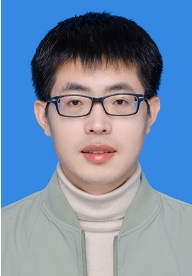Research area: Machine learning, soft sensing, image recognition

Speakers
| Pro. Liu HuiKunming University of Science and Technology, ChinaTitle:Research on dynamic CNN soft sensing of f-cao content in cement clinker based on differential attention mechanism Abstract:This study aims to solve the problem of strong temporal correlation in cement clinker process data, and proposes a dynamic CNN soft measurement method for f-cao content in cement clinker based on differential attention mechanism. Firstly, by calculating the first-order difference matrix and second-order difference matrix of the two-dimensional process data block, and using the method of suppressing extreme values, the difference matrix is transformed into a weight matrix. Subsequently, the attention mechanism module is introduced into the CNN model, which fuses the feature map and weight matrix element by element, and after convolutional pooling, it is further fused with the feature map element by element to enhance the model's attention to the hidden longitudinal temporal correlation information in the samples. Through verification on real cement production process data, this method has achieved significant results, with the predicted RMSE index decreasing to 0.06967, MAE index decreasing to 0.05648, and R2 index reaching 0.82285. This indicates that dynamic CNN based on differential attention mechanism has achieved satisfactory results in soft sensing of f-cao content in cement clinker. |
Dr Syed Abdul Rehman KhanXuzhou University of Technology, ChinaExperience: Dr. Syed Abdul Rehman Khan is an expert in supply chain and logistics management. He achieved his CSCP—Certified Supply Chain Professional certificate in the U.S.A. and completed his postdoctoral fellowship at Tsinghua University. Title: Blockchain Technology and Circular Economy Practices: A New Era Business Strategies for Environmental Sustainability Abstract: Amid rising environmental concerns, Industry 4.0 and Blockchain technology (BCT) are transforming circular economy (CE) practices and prevailing business models. Recognize the same; this study examines the role of blockchain technology in circular CE practices; and their impact on eco-environmental performance, which influences organizational performance. The study collects data from 404 enterprises located in Chinese and Pakistani territories, involved in cross-border supply chain operations. Both countries’ sample has great relevance due to the China Pakistan Economic Corridor (CPEC), which possess several positive fallouts in terms of technology spillovers across firms. Using the PLS-SEM modeling framework, this study provides three key findings. First, BCT significantly improves the circular economy practices (circular procurement, circular design, recycling, and re-manufacturing). Second, CE practices help improve firms’ environmental performance and stimulate their financial performance. Third, higher eco-environmental performance significantly boosts organizational performance. This study set-out the foundations for participating countries/firms that simultaneously achieve financial and sustainable goals by integrating blockchain technology in circular economy practices. |
|

